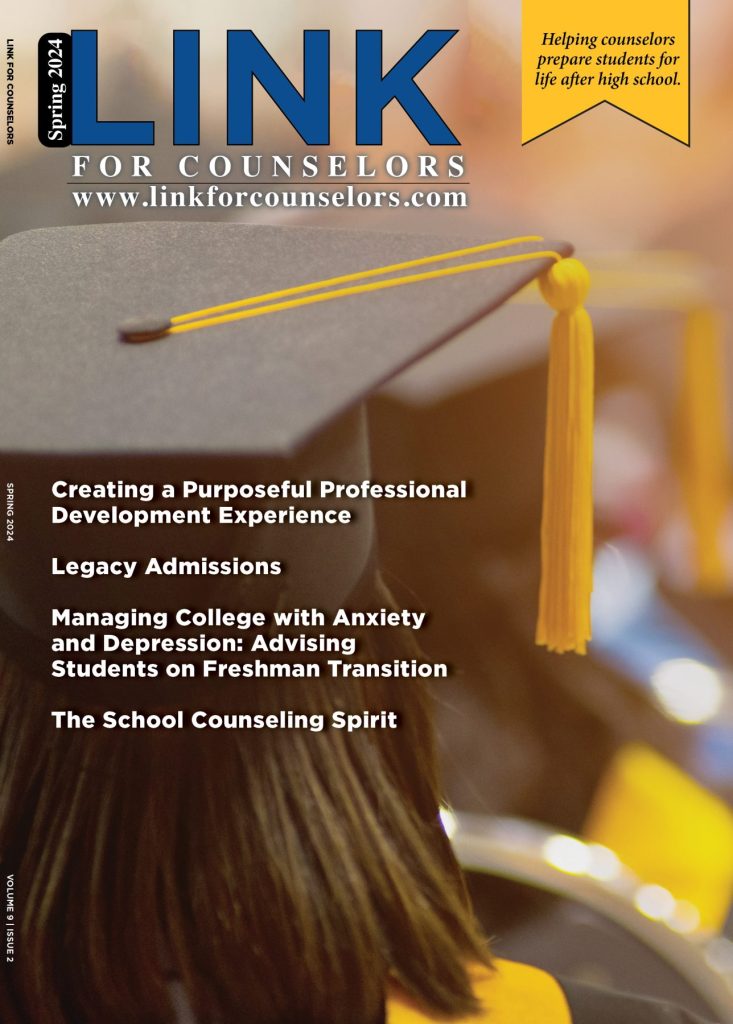Addiction & Recovery – The Definitive Resource Guide – Part 7: The Recovery Toolkit
RECOVERY TOOLKIT
Relapse Prevention Tools & Resources
Throughout this guide, you have read about the definition and causes of addiction, as well as the paths you can take once you’re addicted.
You may have related to the risk factors and the withdrawal symptoms that addiction can cause.
In the last part of this guide, we covered various treatment options that are available to you and showed how recovery is possible. At the same time, recovery from an addiction can be difficult, especially because of:
- The two stages of withdrawal that can make it a hurdle to stop taking the drug.
- The underlying reasons you turned to drugs and continued to use them to begin with.
- The risk of relapse.
The Substance Abuse and Mental Health Services Administration, or SAMHSA, considers recovery to be “a process of change through which individuals improve their health and wellness, live self-directed lives, and strive to reach their full potential.”
Consider how the following tips and tools could fit into your personal recovery process to help make it more manageable and achievable for you.
RELAPSE WITHIN RECOVERY
Keep in mind that your recovery process might actually encompass relapse. David Sack, M.D. explains in Psychology Today that relapse is common for many people trying to recover. Acknowledging this notion and working with it might help you in the long run.
Sack explains, “Changing the behaviors that compel the addict to use is significantly more difficult [than detoxing].”
He elaborates that relapse often happens because of triggers that your brain has associated with the substance, making you want to use the substance again when you come in contact with the trigger.
But there is good news. “Study after study shows the first ninety days in recovery are when the greatest percentage of relapses occur,” cites Sack.
This means that if you can make it past this difficult period of time, you are much more likely to have ongoing sobriety. So if you can continue with treatment, at least at some level, through this rough patch, it can help you succeed in the long run.
Further, Sack notes that your brain can learn new healthier cues in treatment. So if you are taught to take a certain healthy action when you have a craving in treatment, your brain starts to associate that action with the craving.
“Over time the addict subconsciously dissociates the cue from the past reward of using and associates it with the new reward of sobriety,” says Sack.
Get Back on the Horse
If you do relapse, keep in mind that this happens to many people. You are not alone, and it does not make you a failure.
But if you go through relapse, try to see it as one step backward on a path that ultimately leads you forward. Be understanding with yourself that the process of overcoming an addiction is hard on many levels, and put yourself back on the path of recovery.
You have already put so much effort in to overcome addiction, so try to continue moving forward instead of giving up. “If you were able to stay clean and sober before, you will be able to do it again,” encourages Donna M. White, LPCI, CACP on PsychCentral.
And even if you were not very successful with staying sober before, you might just need another approach this time.
Learn from the relapse experience as much as you can. Ask yourself:
- Were there triggers that made recovery hard and encouraged you to go back to the substance? If so, you can work to avoid or manage them better next time.
- Did the type of treatment program you participated in not work too well for you? If not, consider another type of program or a combination of approaches to find better success this time.
How to Prevent Relapse and Have a Successful Recovery
While relapse can be common, the ultimate goal is to get past it. Fortunately, many small and large actions and ways of thinking can guide you on your recovery journey and help prevent relapse.
Here are some tips to keep in mind before, during and after treatment:
Continue to Lean on Professional Help After Treatment
After you have finished an intensive treatment program for your addiction, your recovery process will be easier and more successful if you continue with some form of treatment.
“Active participation in treatment aftercare meetings and recovery support groups…can significantly improve your chance of permanent recovery,” says William L. White, M.A.
As we talked about in the previous part of this guide, it can be very helpful to go through a step-down approach to treatment where you transition from more intensive forms of treatment to less intensive ones.
So after a residential or intensive outpatient program, you could have office visits with a counselor or go to an outpatient treatment facility.
After that, you might want to enter a halfway house or a sober living home to give you an opportunity to transition from rehab to everyday life.
Once you’re done with that, you might want to continue with periodic therapy sessions with a qualified mental health, behavioral health or addiction specialist, or go to group therapy or support group meetings.
These types of follow-up care can continue to provide you with support and guidance to help you steer clear of relapse and stick with recovery.
Or for some people, these less intensive types of care will be your only treatment, as the treatment process varies from one individual to the next.
Deal With Stress
Stress can cause you to turn to a substance as a way to deal with the situation and calm down. This might even mean using a substance to unwind after a long day.
Rajita Sinha of the Department of Psychiatry at Yale University explains in a study, “Stress is a well-known risk factor in the development of addiction and in addiction relapse vulnerability.”
For recovery to work, you need to learn to manage stress in other ways instead of turning to your substance of choice.
Part of the problem might be your perspective on life. There might be a different way to look at problems and situations so they don’t stress you out so much. For instance, you might be following that popular phrase by making mountains out of mole hills.
You might also think that you don’t have the time to put aside for relaxation activities. But when you take away the time you spend on your addiction, you will find that you have plenty of time to put toward other things. You might also realize that there are other ways to free up more time, such as by watching TV for a half hour less or finding parts of your routine where you’re wasting time.
Another aspect is that you might need to make some changes in your life. Maybe:
- You have a relationship in your life that causes you a lot of stress. In this case, it might benefit you to openly talk to the person about the problems within the relationship, and possibly go to counseling together to work through them.
- You have a stressful job and need to find a way to manage the workload better, take some duties off your plate or even find a new occupation.
- You’ve been trying to be the handyman in your house, but it’s time to hire someone to take that off your plate.
These are just some examples of how you might need to make changes to take some of the stress out of your life.
But no matter how many changes you make to your life and your way of thinking, you’ll still experience some stress – it’s a part of life.
Because of this, it’s important to come up with some ways aside from using substances that will help you calm down. You could engage in:
Exercise
Deep breathing
Meditation
Yoga
Laughter
Time in nature
Hobbies
Other techniques that work for you
Your addiction could be all you have left in your life if you stay on this path.
Continuing with addiction can and will deteriorate your health immediately and over time. The National Institute on Drug Abuse lists many consequences of addiction on your mind and body, which include:
Face Problems
Maybe you’re one of the people who has turned to substances at least in part as a way to deal with painful experiences and emotions in your life.
“For treatment to be successful, and to remain sober in the long term, you’ll need to resolve these underlying issues as well,” says Melinda Smith, M.A., and Jeanne Segal, Ph.D., on HelpGuide.
It’s part of the human experience to have problems and tough emotions, and not everyone turns to substances to deal with them. To avoid taking drugs or alcohol every time you are faced with a difficult emotion, you’ll need to learn to work through your problems and find new ways of managing them.
If you try to bottle these problems up, they won’t go away. Instead, they are likely to resurface and make it hard to stay sober. You’ll need to face them head-on and work on them in a healthier way.
It might be beneficial to talk to a counselor, who can help you with your emotional work and offer helpful techniques, such as changing your perspective and turning to methods such as journaling, to handle these emotions.
In many cases, a successful recovery is even about battling the seemingly small, everyday feelings and emotions. You could be tired and feel like you have less willpower over a substance. Other common feelings, such as hunger and anger, can also provoke substance use.
Instead of directly turning to substances, try to figure out why you’re feeling the way you are at a given moment and what could solve it. For instance, simply eating a meal when you’re hungry might keep you away from going back to the substance.
Be Aware of Triggers
To have a successful recovery and avoid relapse, it’s important to know the triggers that your brain has associated with your substance use because they could make you turn back to your substance and continue on the path of addiction. These triggers can be personal to you, although there are also a number of high-risk situations many people experience.
You might need to:
- Change your home environment by actions such as rearranging and removing triggers so you can start fresh.
- Stop going to certain places or taking certain routes, such as a way to work that takes you past your favorite bar.
- Stay away from activities and events, such as parties, that include alcohol and possibly other substances.
It’s also important to be open about your addiction with your doctors so the health practitioner doesn’t unknowingly make the problem worse with a medication prescription or medication during a procedure. Talk to your health provider about your options in these situations.
Take triggers seriously.
Donna M. White, LPCI, CACP, says on PsychCentral, “I have often heard patients share that they wanted to prove to themselves or others that they could be around substances and not use. This is particularly dangerous.” If you follow this mentality, you’ll just make your struggle more difficult and open yourself up to giving in at some point.
Manage Cravings
Cravings for a substance pop up sometimes and make it extremely difficult to continue on the recovery path.
On HelpGuide, Smith and Segal highlight a few ways to manage these cravings when they come. Their ideas, which they adapted from the National Institute on Alcohol Abuse and Alcoholism, include:
- Urge surfing, which involves mental imagery of surfing through the drug craving wave until it breaks
- Distracting yourself with exercise
- Eating healthily
- Engaging in an activity you enjoy until the craving passes
It also helps to reason with yourself that using the substance won’t actually help you like you might think it will and that it will instead cause harm in your life again. You might also want to talk to a supportive person about your craving when you’re going through it.
Further, working on your stress levels could help prevent cravings. “Recovering addicts who avoid coping with stress succumb easily to substance-use cravings, making them more likely to relapse during recovery,” according to a study by mental health and addiction specialists.
Create New Ways to Fill Your Life
Treatment and recovery often include separating yourself from certain people and activities in your life. Because of these changes, you might be nervous about what a sober life will look like for you.
It’s important that you create a new life that fulfills you and replaces the old way of living. “The more positive influences you have in your life, the better your chances for recovery,” says Melinda Smith, M.A., and Jeanne Segal, Ph.D., on HelpGuide.
Creating a new life can include surrounding yourself with a new social network that supports your sobriety and helps you enjoy life without substances. In the process, don’t forget about the people who supported you all along or who would do so if you let them.
And it can help to have a support group of people who have gone through or are going through a similar experience so you have people to turn to for advice, understanding and accountability.
In addition, you need to come up with new activities instead of focusing so much time and attention on using a substance. There are many activities that exist that are not revolved around using substances. You might want to rediscover activities you enjoyed in the past or try some new ones to find out what you enjoy. For instance, think about:
You might want to rediscover activities you enjoyed in the past or try some new ones to find out what you enjoy. For instance, think about:
- Joining a club
- Volunteering
- Playing an instrument
- Engaging in arts and crafts
- Writing
- Starting a hobby
- Exercising or joining a sport
- Attending church
- Participating in various other activities
Try to focus on your health and on helping people, animals and the environment around you.
William L. White, M.A., says, “Recovery is more than just not drinking or using drugs; it is about putting together a new and meaningful life in which alcohol and drugs no longer have a place.”
Additional Techniques to Help Your Journey
Here are some more techniques that could potentially help you stay sober over time:
- Be open with at least some people in your life about your plans to quit, and ask for their encouragement and understanding during the process.
- Set goals that you can measure and stick to regarding your process of quitting.
- Think about why you want to stop using the substance and go back to your reasons throughout the recovery process.
- Get assessed for a possible co-occurring mental disorder so you can be properly treated if one exists.
- Come up with a reasonable schedule that helps you stay on track and prevents too much free time or boredom.
- Be honest with yourself and others — this will help you transition from the lying that often accompanies addiction.
- Learn to ask other people for help without seeing that as a sign of weakness.
- Take note of your routines, patterns and behaviors every so often so you know where you stand and what changes you might need to make.
- Think about aspects of your life you feel positive about and grateful for.
- Come up with plans in advance for when you get into tough situations. For instance, plan to call a sponsor if someone unexpectedly brings drugs to a get-together.
Now you know a number of tips and tools that can help you in your personal recovery process.
Just remember that treatment and recovery are different for each person, and that you might need the help of trained professionals to find your successful road to recovery, especially if you have tried to quit on your own and were unable to for whatever reason.
Don’t be too hard on yourself over becoming addicted or struggling to quit. A read through this guide shows that addiction is a struggle that keeps many within its grasp. It can change your mind and body.
Plus, your coping skills, risk factors, social support and other influences can affect your likelihood of becoming addicted and your level of difficulty in quitting.
Addiction is a complex problem that sometimes requires a complex treatment solution. But that solution exists, and in the words of Ben Martin, Psy.D. on PsychCentral, the key is to, “most importantly, be patient with yourself. Recovery takes time.”




